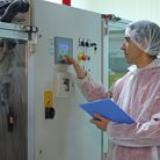EU context
Les décideurs politiques doivent obtenir les connaissances qui leur permettront d’appréhender des problématiques telles que l’élaboration d’une législation adaptée, la manière de garantir la protection sociale au sens large et l’équilibre à trouver entre les exigences des entreprises, de nos sociétés et des individus dans la mise à profit du potentiel considérable de la numérisation.
En 2015, la Commission européenne a adopté sa stratégie pour un marché unique numérique en Europe, l’érigeant en priorité politique. Cette stratégie est propre à créer des opportunités centrées sur le numérique pour les citoyens et les entreprises; elle vise en outre à consolider la position de l’UE en tant que leader mondial de l’économie numérique. Elle vise également à améliorer l’accès à l’information, à contribuer à la création d’emplois pour les personnes disposant des compétences numériques adéquates et à transformer les services publics. Au vu de l’essor de l’économie collaborative à travers l’UE, la Commission s’est fixé comme objectif de stimuler le développement de services nouveaux et novateurs tout en garantissant des mesures de protection appropriées. Dans son agenda européen pour l’économie collaborative, publié en 2016, la Commission clarifie les règles et les recommandations politiques dans ce domaine pour les citoyens, les entreprises et les États membres.
Le travail d’Eurofound
Eurofound se penche sur les conséquences plus larges de l’ampleur et de la portée des techniques numériques pour le marché du travail par rapport aux conditions de travail, à la réglementation du travail et au-delà.
Les répercussions sur l’emploi des technologies révolutionnaires dans le secteur des services sont examinées. Eurofound analyse également les conséquences potentielles de l’économie des plates-formes, notamment du travail participatif, pour le marché du travail. En outre, les recherches sur les conditions de travail et d’emploi des travailleurs mobiles du domaine des TIC se poursuivent.
Elles porteront sur la nature du travail et de l’emploi à l’ère numérique en mettant l’accent sur:
Principales contributions
Un rapport établi conjointement avec l’Organisation internationale du Travail (OIT) sur l’affranchissement par rapport aux horaires et aux lieux des activités professionnelles individuelles étudie les effets du télétravail et du travail mobile fondé sur les TIC sur des aspects précis des conditions de travail.
La Série de séminaires de la Fondation (FSS) offre aux gouvernements, aux syndicats et aux employeurs un espace de discussion dédié aux politiques de l’UE concernant les aspects sociaux et relatifs au travail et l’emploi de l’UE. En 2016, la FSS s’est concentrée sur les effets de la numérisation sur le travail et sur la mise en place de programmes nationaux pour une meilleure mise en œuvre des changements numériques.


























